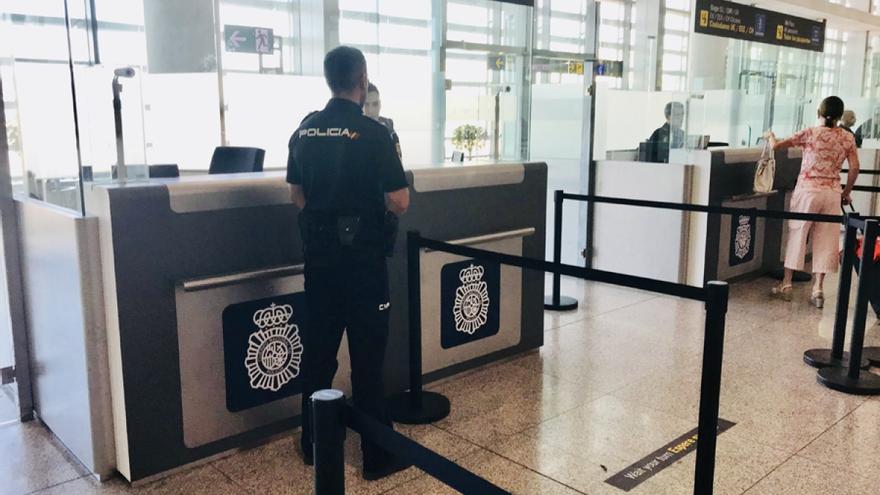
![]() 14ymedio, Rosa Pascual, Madrid, November 1, 2021 — Hopes are fading fast for the Cubans who have been stranded at the airport in Zakynthos, Greece since last Thursday. At least that is what Yanelis believes based on recent media coverage on their plight. The Cuban migrant told her story to 14ymedio on Friday. She is counting down the clock until the deadline Greek authorities have given her to leave the country.
14ymedio, Rosa Pascual, Madrid, November 1, 2021 — Hopes are fading fast for the Cubans who have been stranded at the airport in Zakynthos, Greece since last Thursday. At least that is what Yanelis believes based on recent media coverage on their plight. The Cuban migrant told her story to 14ymedio on Friday. She is counting down the clock until the deadline Greek authorities have given her to leave the country.
“The altercation at the airport put the whole country on alert and now they won’t let any Cubans fly unless they have a visa,” laments the Yanelis, who has little energy left to continue her journey to Spain.
“I’m thinking of going home,” she says, making no effort to hide her disappointment at the prospect that the final leg of her journey, which began months ago in Russia, may not end as she wanted. She was detained on three occasions by police in North Macedonia and spent three weeks in a refugee camp.
The Cuban Foreign Ministry announced on Saturday that it was in discussions with Greek authorities over the eighty-four Cuban migrants at the Zakynthos airport.
The ministry claimed on Twitter that its intention is to “provide consular assistance and guarantees of a safe, voluntary return” as well as “to receive all Cuban migrants who left the country legally and who now find themselves without travel documents in third countries, in accordance with Cuban law.”
Yanelis finds the ministry’s message hypocritical but believes it could be useful to some people who might be forced to go back for lack of funds. “Perhaps there are some Cubans who want to go back. There are a lot who don’t have family to help them financially,” she says. But she herself rules out returning under those conditions. “In my case, if I go back to Cuba, it will be on my own two feet.”
Most of the Cubans stranded in Greece have no desire to return to a country from which they fled for political and economic reasons. Therefore, only those who find themselves in precarious circumstances would be willing to accept the offer by Cuban authorities.
The migrants were counting on the employees at the European airports being absent-minded. This made their journey problematic because it relied on inspectors being distracted at all points along the way. Passengers were required to present their travel documents, including visas, to airport personnel both at the check-in desk and at the boarding gate.
Upon arrival at a European airport, passengers on international flights are divided into two groups: one for domestic travellers and those with EU passports, and another for everyone else. Each group must present the requisite travel documents. For the Cubans it was the last stop before their final destination.
While some of the more fortunate, like Yanelis, wait for a window of opportunity to open to catch a flight to Spain or Italy, thirteen Cubans remain in detention for undisclosed reasons at a center for migrants in Corinth, Greece. The group is apparently awaiting political asylum, although some of them say they have not applied for it.
____________
COLLABORATE WITH OUR WORK: The 14ymedio team is committed to practicing serious journalism that reflects Cuba’s reality in all its depth. Thank you for joining us on this long journey. We invite you to continue supporting us by becoming a member of 14ymedio now. Together we can continue transforming journalism in Cuba.
